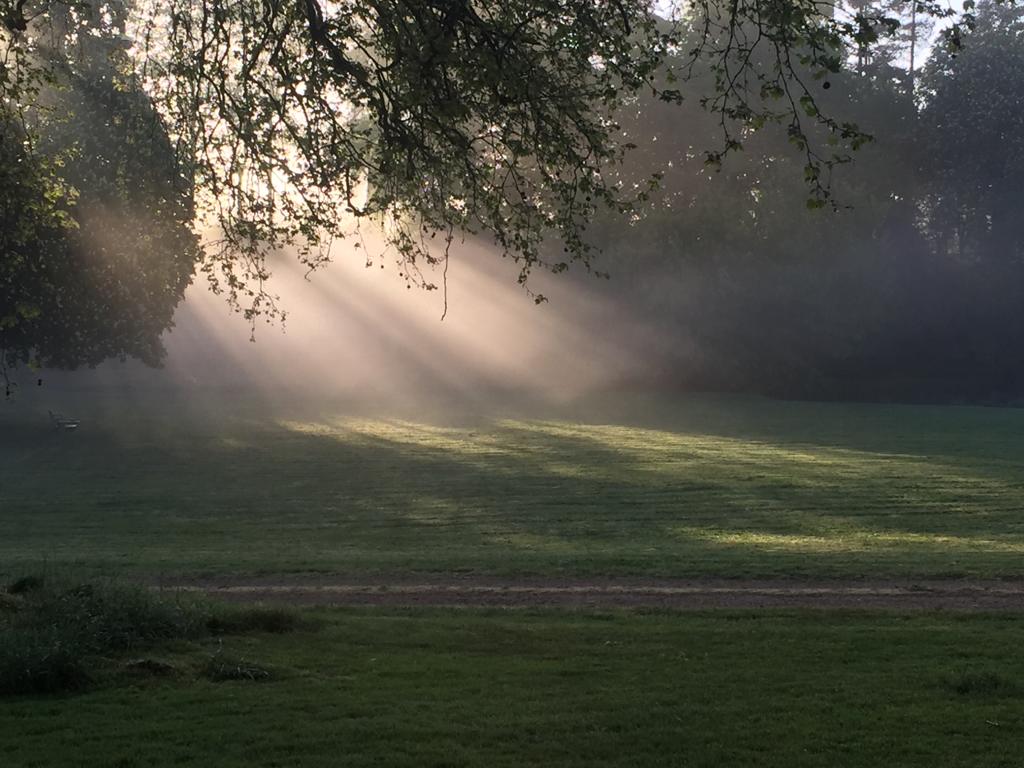We have been discussing how essential meditation is to personal growth and transformation into the person God intends us to be. There is no doubt that the faithful repetition of a prayer word, a mantra, leads to the silence and solitude of ‘pure’ prayer, as the Desert Fathers and Mothers called it – the prayer of the heart not of the mind. The question, however, that is often asked is ‘Where is this teaching in Scripture?’
Laurence Freeman in Jesus the Teacher Within (p 201 -204) takes us through the teaching on prayer of Jesus, as recorded in the Gospel of Matthew Chapter 6. When the disciples ask Jesus to teach them how to pray he starts with what we now know as the Our Father. When you hear the Our Father in Aramaic, the language Jesus spoke, it comes across beautifully as “collection of short rhythmic phrases”, easy to memorise and chant or sing. It is not difficult to imagine how the attentive, faithful repetition of these phrases would lead “to stillness and insight”.
When we hear Jesus say: “Be careful not to make a show of your religion before men”, he stresses that it is not the ego that should be the motivation in prayer. The ego seeks esteem in the eyes of others. The true way of prayer wells up out of our unpretentious, sincere true Self, our Divine spark, and leads to a deep, faithful awareness of our connection with God. To let that happen naturally Jesus recommends silence and solitude: “When you pray, go into a room by yourself, shut the door and pray to the Father who is there in the secret place; and your Father who sees what is secret will reward you.”
As always, if we take this saying literally rather than metaphorically, it would not disclose its true meaning. The obstacle is that we do know that having your own room in these ancient times was rare. John Cassian explains beautifully the real meaning behind this saying: “We pray in our room when we withdraw our hearts completely from the clatter of every thought and concern and disclose our prayers to the Lord in secret, as it were intimately. We pray with the door shut when, with closed lips and in total silence, we pray to the searcher not of voices but of hearts.” The emphasis is therefore on interiority, on the prayer of the heart, which is facilitated by using “few words”: “Do not go babbling on….Your Father knows what you need before you ask him.”
Letting go of thoughts, often worries, which form a great barrier to going within, is the next aspect Jesus highlights: “I bid you put away anxious thoughts about food and drink to keep you alive and clothes to cover your body.” As Laurence Freeman brings out this “does not mean a total disregard for the basic necessities of life. We need to eat and drink. Identifying the Self and true happiness with what goes extravagantly beyond basic needs is the problem.” This letting go moreover helps us to enter the ‘here’ and ‘now’: “So do not be anxious about tomorrow; tomorrow will look after itself.” It is only by being in the ‘here’ and ‘now’ that we will become aware of the Presence of the Divine within.
Finally underlying everything he said is the importance of paying “pure attention to the power of God at the heart of all reality: Set your mind on God’s Kingdom and his justice before everything else, and all the rest will come to you as well.”
In the Sermon on the Mount we find all the teaching therefore which the Desert Fathers and Mothers had taken to heart and which has come our way through John Main’s discovery of this spiritual practice in the writings of John Cassian.





